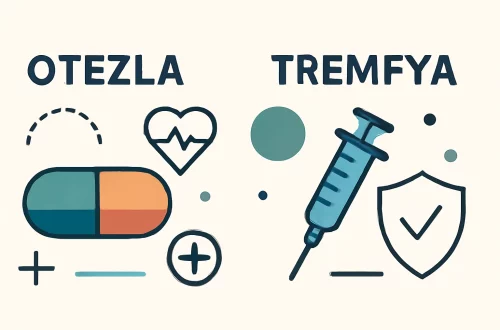
Can Rabbits Eat Watermelon Rind Safely and Healthily?
Rabbits are beloved pets that bring joy and companionship to many households. Their unique personalities and playful antics make them endearing creatures, but as a responsible pet owner, it’s essential to focus on their dietary needs. Rabbits require a balanced diet rich in hay, fresh vegetables, and a limited amount of pellets. However, many rabbit owners often wonder about the safety and health benefits of incorporating fruits into their pets’ diets. Watermelon, a summertime favorite for many, raises the question: can rabbits safely enjoy watermelon rind?
Watermelon is hydrating and delicious, but the rind is often discarded by humans. For rabbits, the rind might seem like an intriguing option, particularly because they are natural foragers and enjoy exploring new tastes. However, not all fruits and vegetables are suitable for rabbits, and it’s crucial to understand the nutritional implications of any new food item introduced to their diet. In this article, we will delve into the specifics of feeding watermelon rind to rabbits, discussing its safety, health benefits, and potential risks, ensuring that you can make informed decisions for your furry friends.
Understanding a Rabbit’s Diet
To evaluate whether watermelon rind is safe for rabbits, it’s essential to understand their dietary needs. Rabbits are herbivores, which means their primary diet consists of plant-based foods. The cornerstone of a rabbit’s diet should be hay, specifically grass hay, which provides the necessary fiber for healthy digestion. Fresh vegetables and a small amount of pellets can supplement their diet, but fruits should be considered treats due to their high sugar content.
Rabbits have a unique digestive system that requires a high-fiber diet to keep their gut moving efficiently. Hay should make up the majority of their intake, while fresh greens and vegetables can add variety and essential nutrients. Leafy greens like romaine lettuce, cilantro, and parsley are excellent choices. Treats like fruits should be offered sparingly and should never replace the essential components of their diet.
When introducing any new food to a rabbit’s diet, it’s crucial to do so gradually. This allows you to monitor how your rabbit reacts to the new item and helps prevent gastrointestinal upset. If a rabbit has never tasted fruits before, starting with small, manageable portions is advisable. Not all fruits are created equal, and while some are safe, others can be harmful.
With this understanding of a rabbit’s dietary framework, we can now explore whether watermelon rind fits into this essential nutritional blueprint.
Safety of Watermelon Rind for Rabbits
Watermelon rind, the tough outer layer of the fruit, is often overlooked but can be a safe option for rabbits when prepared correctly. The rind is low in calories and high in fiber, making it a suitable treat in moderation. Unlike the sweet, fleshy part of the watermelon, the rind contains less sugar, which is beneficial since rabbits can easily develop digestive issues from an excess of sugar in their diet.
When offering watermelon rind to your rabbit, it is essential to wash it thoroughly to remove any pesticides or chemicals that may be present on the surface. Organic watermelon is often the best choice if available, as it typically has fewer harmful residues. Once cleaned, you can cut the rind into small, manageable pieces to make it easier for your rabbit to chew and digest.
Introducing the rind gradually into your rabbit’s diet is also advisable. Start with a small piece and observe how your rabbit reacts. Look for any signs of digestive distress, such as diarrhea or a change in eating habits. If your rabbit enjoys the watermelon rind without any adverse reactions, it can be included as an occasional treat.
However, it is crucial to note that the rind should never replace the essential components of a rabbit’s diet. It should be considered a supplement to their regular intake of hay and vegetables. While watermelon rind is safe for most rabbits, there are always exceptions, and monitoring your pet’s health should remain a priority.
Health Benefits of Watermelon Rind
While the primary focus of introducing watermelon rind into a rabbit’s diet should be safety, it’s also important to recognize the potential health benefits. Watermelon rind is rich in fiber, which aids in digestion. A high-fiber diet is essential for rabbits to prevent gastrointestinal stasis, a potentially life-threatening condition where the digestive system slows down or stops altogether.
Additionally, the rind contains vitamins and minerals that can contribute to a rabbit’s overall health. For example, watermelon rind is a source of vitamins A and C, both of which play crucial roles in maintaining a rabbit’s immune system and promoting healthy skin and fur. Vitamin A is essential for vision and cellular function, while vitamin C acts as an antioxidant, helping to protect cells from damage.
Furthermore, the high water content in watermelon rind can help keep your rabbit hydrated, particularly during warmer months when dehydration is a concern. Ensuring that your rabbit has access to fresh water is also critical, but adding hydrating treats like watermelon rind can be a delightful way to encourage them to consume more fluids.
Nonetheless, moderation is key. While watermelon rind can offer health benefits, it should not be used as a primary food source. A balanced diet rich in hay, vegetables, and a minimal amount of pellets is vital for your rabbit’s long-term health and well-being.
Potential Risks of Feeding Watermelon Rind
While watermelon rind can be a safe and healthy treat for rabbits, there are potential risks to consider. One of the primary concerns is the introduction of any new food item into a rabbit’s diet. Rabbits have sensitive digestive systems, and sudden changes can lead to gastrointestinal upset, including diarrhea and bloating. This is why it is crucial to introduce watermelon rind gradually.
Another potential risk is the quality of the rind itself. If the watermelon has been treated with pesticides or other chemicals, these substances can be harmful to rabbits. Always wash the rind thoroughly to minimize any risks associated with chemical residues. Opting for organic watermelon can further reduce this risk.
Additionally, while watermelon rind is low in sugar compared to the flesh of the fruit, it still contains some sugar. Offering too many sweet treats, even in the form of watermelon rind, can lead to obesity and dental problems in rabbits. It’s essential to maintain portion control and ensure that the rind is only a small part of a balanced diet.
Lastly, not all rabbits will react the same way to watermelon rind. Some may love it, while others may refuse to eat it altogether. Each rabbit has its preferences, and it’s crucial to respect their individual tastes. Always prioritize their usual diet and only use treats like watermelon rind as an occasional supplement.
In conclusion, while watermelon rind can be a safe and healthy treat for rabbits when given in moderation, it is vital to consider individual dietary needs and preferences. Monitoring your rabbit’s health and reactions to new foods will ensure they live a happy and healthy life.
**Disclaimer:** This article is for informational purposes only and should not be considered medical advice. Always consult with a veterinarian for any health-related concerns regarding your pet.




